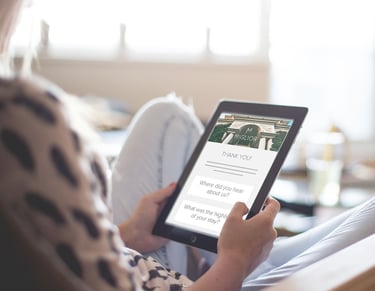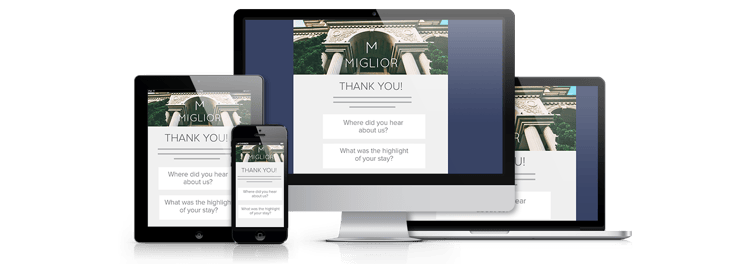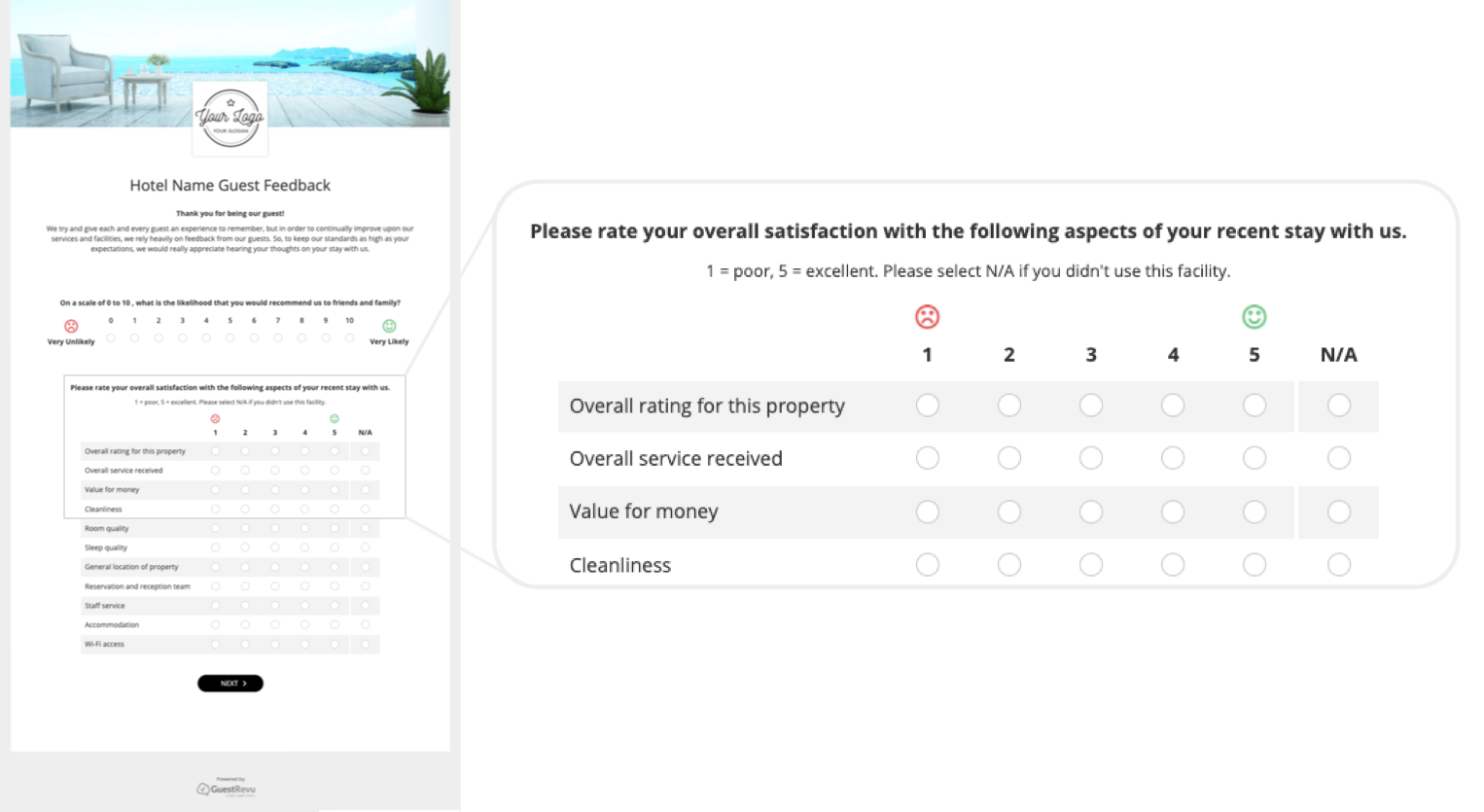
A well-designed questionnaire can give you invaluable insight into the general guest experience and overall quality of your hotel. A bad one will not only generate very little feedback, but annoy guests in the process.
Are you certain you’re getting it right?
Creating an effective questionnaire can be a challenging process. You need to strike a good balance between keeping it succinct, while making sure it’s thorough enough to give you an accurate, holistic picture of your business.
We take a look at how you can optimise your questionnaires to help steer your hotel towards the sunny shores of guest satisfaction.
First impressions – the email invite
A few simple touches early in the questionnaire process can drastically improve your response rate. Some points to consider:
- Make sure the email comes from a person of authority at your hotel
- Make the subject line compelling, grabbing your guest’s attention while relaying the point of the email
- Include a personalised message, mentioning the guest by name and thanking them for staying at the hotel
- Remember to send the email within one to three days of the guest’s stay
- Don’t forget to thank your guest for their time once they have completed the questionnaire
- If you have a loyalty programme, your post-stay email provides a good opportunity to remind guests about the perks of participating
Design and layout
Quite a few questionnaires out there certainly aren’t easy on the eyes, with many created using free software and basic templates. Even big hotel chains sometimes neglect to incorporate, at the very least, their own branding and logo in the design. If you can’t make the time to do that, what message does it send to your potential respondents? Why should they make time for you?

Frame your questionnaire (and also gather information that will put responses in context) by first gathering a bit of information about the guest – was this a leisure or business trip, did the guest travel solo, etc. and remember to create a logical flow of questioning, starting with the booking process, check-in, the stay itself and finally check-out.
Looking at length
Chances are your clients are very busy people, who can’t or don’t want to spend 20+ minutes filling out a hotel questionnaire. Statistics show that shorter questionnaires have higher completion rates, so make sure guests can complete it within five to 10 minutes, including about 20 questions.
Are you asking the right questions?
As mentioned above, the questions should move down in a logical order from booking through to check-out. Start with one question that will give you an idea of the guest's overall experience, such as the Net Promoter Score question. This will give you an idea of how likely a guest is to recommend you to her friends and family, and will allow you to easily sort through your reviews for negative and positive experiences.
At the beginning of the questionnaire, you may also want to ask a few marketing and segmentation questions, such as what kind of trip your guest was on (family holiday, romantic getaway, business, etc.) how often your guest visits your part of the world, how they heard about your hotel, and so on.
Bear in mind that you need to find the balance between getting enough information to help your marketing and operational efforts, without the length of your questionnaire becoming offputting for your guest.
Once you have established who your guest is and whether they feel positive, negative or neutral towards your hotel, you can move on to questions that rate services and amenities in general on a five point rating scale (excellent, good, average, bad, very bad).

You can then use drill-down questions to find out more about how guests feel about individual areas of their stay, particularly those they gave a negative rating. You can also ask specific questions you’d like answered about a particular topic, such as the game drives or new swimming pool.
Remember that you need to use this data, so ask yourself if you’d be able to act on an answer to every question you ask. Always make sure your questions are tailored towards customer satisfaction, and ensure they’re framed with context to minimise a differing response perspective among guests.
Remember that you need to use this data, so ask yourself if you’d be able to act on an answer to every question you ask.
Other points to keep in mind:
- Refrain from using industry jargon, which can be confusing to guests. Instead of saying, “How would you rate the variety of our IRE?” rather type out ‘in-room entertainment – e.g. our satellite TV package, Netflix, DVDs, and board games.'
- Keep your questions objective, and don’t lead respondents towards an answer you’d like them to give – ultimately, this is for your benefit and will help you to supply better service
- Be as specific as possible in your questioning
- Avoid double-barrelled questions, and don’t ask two questions at once. For example, don’t ask “How would you rate the speed and courtesy of our check-in staff” – they might be very quick, but not at all polite.
Technology is your friend
Sending questionnaires to hundreds of guests can become a full-time chore, especially if you put the effort into making sure that your guests receive their questionnaires soon enough after their stay that they haven't forgotten who you are, but not so soon that they are still travelling and don't have time to respond. The solution? Use technology and automate your questionnaire sending. Choice solutions can integrate with your property management system and automatically send questionnaires to guests a specified number of days after they check out.
Keeping your questionnaire length and guest’s patience in mind, ensure your questionnaire has conditional question logic to ensure only the most relevant questions appear. Conditional question logic means that specific questions are only displayed depending on the guest’s previous answers, allowing you to get the details you need from the people who have them, while ensuring you don’t waste anyone’s time.
Having the right tech partner will allow you to monitor feedback in real time with customised alerts, as well as run your own reports whenever you choose, allowing you to react as necessary to any negative responses.
As a matter of extreme importance, make sure your questionnaire is mobile responsive. Chances are more than 60% of respondents will complete it on their phone or tablet device, so you must ensure this can be accommodated.
By following these guidelines in creating or modifying your questionnaire, you’ll be able to create a streamlined, user friendly feedback process that will give you the tools to take your hotel offerings to the next level.




